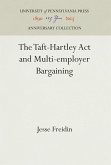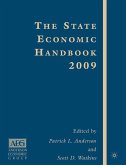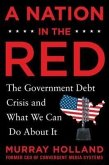This book explains how four major firms--American Airlines, El Paso Natural Gas, AT&T, and Bank America--and their respective managements were challenged by the deregulation of markets starting in the late 1970s. The four stories illustrate the dynamic process of market restructuring and organizational adjustment, as well as the ways in which managers and regulators painfully learned to operate effectively as their economic and political environments shifted around them.
Richard Vietor has put all students of U.S. economic regulation in his debt with this penetrating study of four firms through five decades...For readers who want a graduate education in the subject there's no better place to begin.
Contrived Competition seems almost certain to become a point of departure for a lively subsidiary literature testing and extending its insights...Vietor has brought together in an elegant framework a way of thinking about economic regulation. Researchers will acknowledge their debt to him by probing his model with questions and with their efforts to pin down with greater precision cause and effect relationships. What causes regulatory ossification? What leads firms to surrender rather than fight (AT&T comes to mind here)? What does the competition do? What weight should be put on CEO's 'visions?' Where do the restructuring ideas come from? Are the first mover advantages that important (they seem to be squandered in these cases as they were famously in automobiles so long ago)? Are regulated markets more shaken by macro-economic or regulatory change? Vietor has contrived to make us rethink the entire cycle of the regulatory epoch in American history.
This is an important and well-written book, developing a subtle and complex argument. It focuses on the strengthening of the American regulatory tradition in the New Deal and the breakdown of regulation in the 1970s and 1980s, in airlines, gas, telecommunications, and banking...The result is a richly complex narrative.
Contrived Competition seems almost certain to become a point of departure for a lively subsidiary literature testing and extending its insights...Vietor has brought together in an elegant framework a way of thinking about economic regulation. Researchers will acknowledge their debt to him by probing his model with questions and with their efforts to pin down with greater precision cause and effect relationships. What causes regulatory ossification? What leads firms to surrender rather than fight (AT&T comes to mind here)? What does the competition do? What weight should be put on CEO's 'visions?' Where do the restructuring ideas come from? Are the first mover advantages that important (they seem to be squandered in these cases as they were famously in automobiles so long ago)? Are regulated markets more shaken by macro-economic or regulatory change? Vietor has contrived to make us rethink the entire cycle of the regulatory epoch in American history.
This is an important and well-written book, developing a subtle and complex argument. It focuses on the strengthening of the American regulatory tradition in the New Deal and the breakdown of regulation in the 1970s and 1980s, in airlines, gas, telecommunications, and banking...The result is a richly complex narrative.








